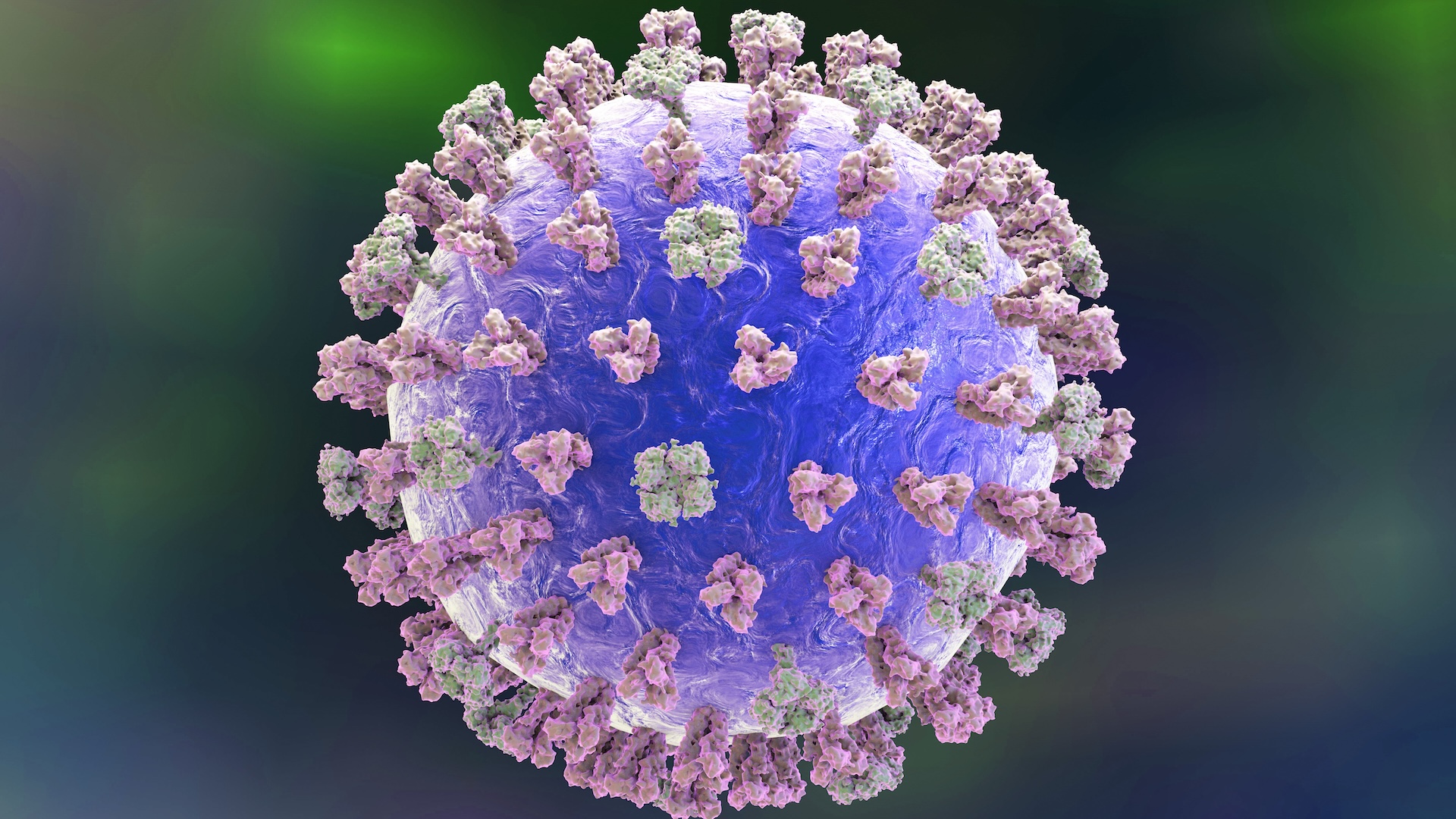
A hospitalized teen in British Columbia is likely Canada's first case of H5 bird flu contracted within the country, officials reported Saturday (Nov. 9).
H5 bird flu viruses are a broad group of related viruses that carry a protein called hemagglutinin 5. The group includes H5N1, the virus that has been detected in at least 46 people in the U.S. this year, mostly farmworkers.
For now, H5N1 poses little threat to the general public, officials say, but emerging evidence suggests that the virus is evolving to be better at infecting mammals. What's more, the spread of seasonal flu may offer H5N1 a chance to swap DNA with other influenza viruses and potentially get better at infecting humans or causing more-severe disease. With these concerns in mind, officials in both the U.S. and Canada are keeping an eye on the spread and evolution of bird flu.
Now, a teenager from the Fraser Valley in southern British Columbia has tested positive for an H5 virus. The presumptive positive test was performed by the B.C. Centre for Disease Control's Public Health Laboratory, and now, samples are being sent to the National Microbiology Laboratory in Winnipeg, Manitoba, to officially confirm the diagnosis. The U.S. has been using a similar process to confirm suspected bird flu cases in the country.
Related: Source of person's recent bird flu case remains a mystery
An investigation is now underway to determine how the teen was exposed to the virus and whether any of their contacts were exposed or are showing potential symptoms of bird flu. At the moment, it's thought that the likely source of the teen's illness was an infected bird or another animal. The statement did not note whether the patient had recently been around farm animals.
To date, there isn't evidence of H5 viruses spreading from one person to another.
"Our thoughts are with this young person and their family during this difficult time," Dr. Bonnie Henry, British Columbia's provincial health officer, said in Saturday's statement. The statement doesn't note what kinds of symptoms the patient is experiencing. Historically, human H5 infections have ranged from mild to deadly, although the severity of the illness may vary with different virus strains.
"This is a rare event," Henry said. "While it is the first detected case of H5 in a person in B.C. or in Canada, there have been a small number of human cases in the U.S. and elsewhere, which is why we are conducting a thorough investigation to fully understand the source of exposure here in B.C." Canada has reported one H5N1 case previously, in 2014, but the infected person had caught the virus while traveling in China.
No additional human cases of H5 have been detected in Canada. As the public health investigation progresses, the Canadian Food Inspection Agency is also working with various partners to respond to an uptick in H5N1 that's been affecting both farmed and wild birds in British Columbia since October. At least 22 outbreaks have been reported among poultry in the province since then.
For instance, in early November, a farm on British Columbia's Vancouver Island learned that its chickens and ducks had been exposed to bird flu. After contacting authorities, the farm's owners were instructed to cull all 50 affected birds.
Because H5N1 is very deadly and spreads very quickly in poultry, culling the birds is the best way to stop the spread to additional flocks. U.S. farmers culled tens of millions of birds when bird flu ripped through poultry farms across the nation in 2022.
"In B.C., H5N1 has been detected in wild birds, on poultry farms and among small wild mammals, including skunks and foxes," the statement noted. However, unlike in the U.S., "in B.C. and Canada, there have been no cases reported in dairy cattle and no evidence of avian influenza in samples of milk." H5N1 can linger in raw milk but is neutralized through the pasteurization process.
Ever wonder why some people build muscle more easily than others or why freckles come out in the sun? Send us your questions about how the human body works to community@livescience.com with the subject line "Health Desk Q," and you may see your question answered on the website!







